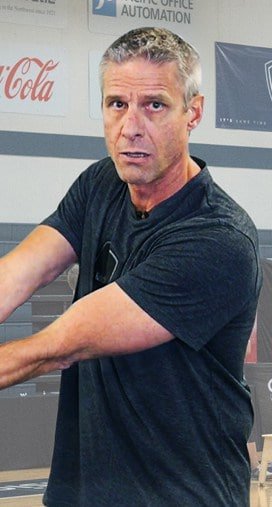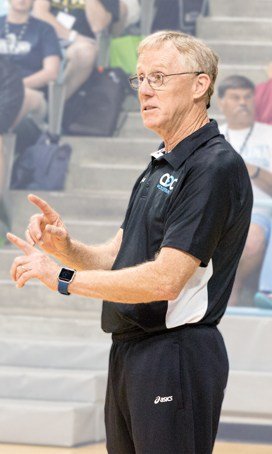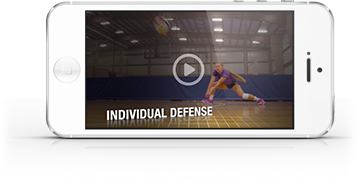
Jaimee Rindy | middle blocker at Coe College, juniors’ club coach
In my 7 years playing volleyball, I’ve had 14 head coaches, probably a dozen more assistant coaches, a handful of coaches who I’ve worked with but never played for and countless older players and alums who helped at practices. I would consider about 80 percent of these coaches my friends. If I see them around town, I’ll certainly stop, say hello and catch up.
I’ve been fortunate to have had overwhelmingly positive relationships with my coaches. And positive relationships are what you as a coach should be striving for. Above all else, your players should feel welcome in your gym, and they should feel like they are wanted there.
This doesn’t seem too hard, right? Be nice to them, laugh with them, do fun drills with them. Simple.
Well, during my recent experience as the coach of a 14s club team, I found out it wasn’t so simple. I was 18, only 4 years older than my players. I desperately wanted them to like me, to feel comfortable coming to me with questions about volleyball or life. But at the same time, I needed to be firm enough to stand my ground and be taken seriously when I gave an order or enforced a rule. So the question became, how could I be a coach that commanded respect without abusing my power?
It’s difficult, especially for young coaches, to find the balance between being a coach and being a friend to your players. Being four years older than your players is a huge difference in terms of volleyball knowledge, but I could still clearly see myself at their age. I thought back to my favorite coaches, the ones who taught me the most, and I tried to imitate the way they interacted with their players. I remembered the first day of practice with my favorite coach, when he sat us down and told us, “Look, I’m not here to be your friend. I’m going to be tough on you, and you may not like it. You don’t have to like me, but I will make you a better volleyball player.”
Of course, I ended up liking him a lot. By setting the tone from the beginning that his job first and foremost was to make us better, he made me want to get better. When I did wrong, his criticism actually meant something to me, as did his praise when I did something right. He instilled some core values in me by proving to us that when we worked hard, the game was fun. But he would not tolerate lack of focus or effort. We had a great season together because our relationship was built on mutual respect and an effort to understand each other as people.
If there’s any coach who’s had success at understanding his players as people, it’s former Stanford women’s coach John Dunning, who won five NCAA championships during his career. He says it’s important that players know you care about them as individuals, not just athletes. That involves considering what else is going on in their lives.
“On a day you want to push but you come into the gym and can tell by the look on their face that it was a hard day and pushing might cause problems or damage, you need to know how to adjust,” Dunning says. “And when they know that you’ve adjusted to those kinds of things, they also know that you care.”
You don’t have to land perfectly in the middle of friend and Commander in Chief, but if you go too far to either side, you’ll have a tough time accomplishing your goals. I’ve had coaches who have fallen heavily on both sides. One spent all her time becoming our friend, so none of us considered her an authority figure when it came time for her to be a coach. Another had no concern for getting to know us outside of the gym and was so forceful and demanding that we didn’t feel comfortable approaching him, whether it was with concerns, skill questions, or just to ask about his day. While perhaps the intentions of both coaches were good, the way they chose to interact with their players caused communication breakdowns, and that prevented them from being the most effective coaches they could be. The balance between a professional and personal relationship with your players will determine how successful you are at leading them. Get to know them, but maintain a distance that sets you apart. Ask them about themselves, but make sure you’re not having the same conversations with them as you would with your friends on a Saturday night. And, as a general rule, don’t follow or friend them on social media until they are no longer your player.
Many of my previous coaches are my friends today, but those relationships only exist after years of building mutual trust and respect. No matter how long I’ve known them or how old I get, they will always remain a coach first, a friend second.
Jaimee Rindy is a junior middle blocker at Coe College in Cedar Rapids, Iowa.



